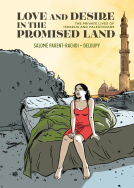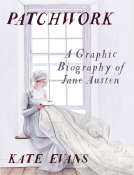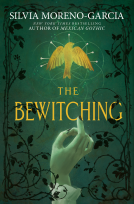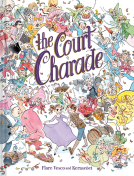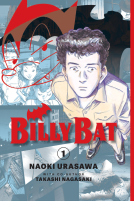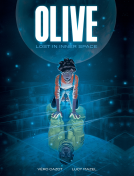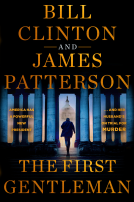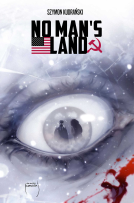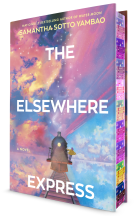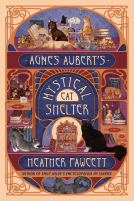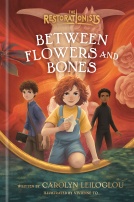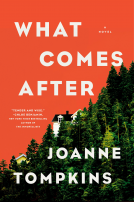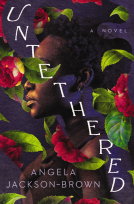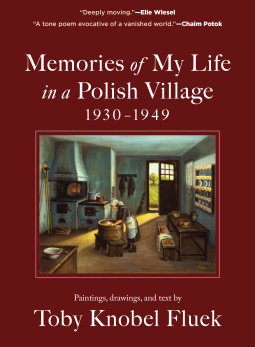
Memories of My Life in a Polish Village, 1930-1949
by Toby Knobel Fluek
This title was previously available on NetGalley and is now archived.
Send NetGalley books directly to your Kindle or Kindle app
1
To read on a Kindle or Kindle app, please add kindle@netgalley.com as an approved email address to receive files in your Amazon account. Click here for step-by-step instructions.
2
Also find your Kindle email address within your Amazon account, and enter it here.
Pub Date May 21 2024 | Archive Date May 20 2024
Talking about this book? Use #MemoriesofMyLifeinaPolishVillage19301949 #NetGalley. More hashtag tips!
Description
This file is NOT currently available for Kindle. We apologize for any inconvenience. If you have difficulties with downloading, please email us (at publicity@theexperimentpublishing.com) for assistance or leave a note in lieu of a review rating.
Here is “a tone poem evocative of a vanished world” (Chaim Potok), “the nearly thousand-year-old life of the village Jews of Eastern Europe—God-imbued, profound in its simplicity—at the very hour of its murderous destruction by Nazi terror” (Cynthia Ozick), acclaimed by Elie Wiesel as “deeply moving.”
Scene by scene, person by person, artist Toby Knobel Fluek lovingly unfurls a unique view of Jewish life. She introduces us to her village, to her family, to the people among whom they lived, Jewish and Catholic; she shows us what they did, how they fared, how Jewish customs and holidays were observed—and, with both feeling and restraint, illustrates how this long-enduring way of life was disrupted and shattered by World War II. She takes her family through Russian occupation, through the devastation wreaked by the Nazis and, finally, to a new beginning in America.
Advance Praise
“Deeply moving.”—Elie Wiesel, author of Night
“Toby Fluek’s Memories of My Life in a Polish Village is a beautiful book. Its luminous art and water-clear prose form a world of exquisite images that in the end create a tone poem evocative of a vanished world—a poem that is not a dirge but a gentle celebration of hardships overcome and the triumph of the spirit over unspeakable horror.”—Chaim Potok, New York Times‒bestselling author of The Chosen and My Name Is Asher Lev
“Toby Fluek’s brightly remembering palette restores, for our marveling eyes, the nearly thousand-year-old life of the village Jews of Eastern Europe—God-imbued, profound in its simplicity—at the very hour of its murderous destruction by Nazi terror. Her living yet memory-wounded paintings are too vivid—hence too tragically dyed in loss—to be reduced to nostalgia: they are a plain record of the innocence that was annihilated forever by Europe’s great storm of hatred.”—Cynthia Ozick, New York Times‒bestselling author of Heir to the Glimmering World and The Shawl
“Fluek’s realistic, richly detailed paintings could be called ‘folk Vermeer.’”—New York Magazine
“Wrenchingly beautiful . . . a moving memoir . . . Fluek literally ‘pictures’ her childhood in both art and words—a warm Jewish family life that included farm chores, holiday observance, and good relations with fellow villagers both Jewish and Catholic. She then describes with great restraint the devastation of her world by World War II. The individual vignettes, such as "Walking Between Bullets" and "German Prisoners of War," are devastating in the use of spare prose and detailed art. She takes the remains of her family through the Russian occupation, the horrors left by the Nazis in Poland, to a happy ending in America.”—Library Journal
“Charming yet unsentimental . . . Fluek's quiet dignity as a chronicler is fortifying. . . . Her tranquility of palette and word, though never denying the sufferings of the past, is distinctly restorative.”—Publishers Weekly
“A remarkable memoir . . . Fluek moves with powerful simplicity through the details of Jewish pre-war life, her struggle to survive the Nazi occupation, and her eventual emigration. . . . A powerful work.”—Booklist
“Fluek offers readers a window into her peaceful existence in Poland before it was shattered by World War II. Her village, family, neighbors, and friends are brought to life in her simple, yet moving, style. Her life is painstakingly depicted through images of Jewish customs and holidays, beginning in the early 1930s when she was a child, through the Nazi occupation, her escape, the loss of her family, and finally safety in the United States. The story's appeal is its simplicity and straightforward, clear descriptions, told without a great deal of emotion. Yet readers will be moved by Fluek's account of her life and the struggles of that time.”—School Library Journal
Available Editions
| EDITION | Other Format |
| ISBN | 9781891011689 |
| PRICE | $24.95 (USD) |
| PAGES | 144 |
Links
Available on NetGalley
Average rating from 4 members
Featured Reviews
 Reviewer 1006485
Reviewer 1006485
Heartfelt and detailed illustrations bring to life the smallest moments in a child's life as she first lives in a tiny village, then is forcibly moved to a Jewish ghetto, and eventually flees to hide in the wilderness until finally being reunited with the few in her family who remain alive after the war is over. I've always loved looking inside daily life in other time periods. This book is filled with gems like the fact that her mother made the bread for each week all at once, and therefore kneaded the dough in a huge pot (that's a lot of dough!). Or how a pot that could no longer be repaired would have its hole plugged with a scrap of cloth pulled through, and find a second life as a storage container. The illustrations of life in the village could be illustrating the lives of her ancestors a hundred years earlier. It's a shock as you follow her from there into the terrible realities of the war and its brutality. The story is ultimately one of resilience. It's also an incredibly important documentation of a way of life that no longer exists. Highly recommend.
Thank you to NetGalley and the publisher for providing this eARC for unbiased review.
Readers who liked this book also liked:
Salomé Parent-Rachdi
Biographies & Memoirs, Comics, Graphic Novels, Manga, History
Szymon Kudranski
Comics, Graphic Novels, Manga, General Fiction (Adult), Mystery & Thrillers
